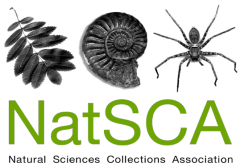Principal Curator, Invertebrates
Our Invertebrate specimens are an important part of our Natural Sciences collection and one of the largest collections within National Museums Scotland. The Invertebrate collections include sponges, jellyfish, shrimps, crabs, worms, snails, octopuses, and sea urchins together with extensive and diverse entomological material. The collections are separated into wet preserved specimens, dried specimens and models, and microscope slides. We house several historically significant collections and in recent years we have acquired a number of large and scientifically important collections of marine invertebrates through collaboration with a variety of institutions with an emphasis on retaining samples from British waters.
There are now nearly four million specimens of marine invertebrates in the collection, which form an invaluable resource for the research of British marine fauna, especially the North Atlantic deep sea. In addition, the Entomology portion contains a further 2 million specimens from all over the world with particular strengths in Lepidoptera, Odonata, Hymenoptera, small orders and certain Coleoptera and Diptera.
Required Skills:
As head of section you will have responsibility for developing these collections and leading, managing and participating in the research, interpretation and public programme activities of the section. Working closely with colleagues, there is a huge potential to develop external funding streams for activities, including research, digitisation, collections care and outreach programmes. You will also be able to support the Keeper in developing the Department and help it achieve its aims and ambitions.
You must have a postgraduate degree (or equivalent) in a biological science, together with demonstrable personal expertise in a relevant subject area that could include, but is not limited to, crustaceans, molluscs, worms, bryozoans, poriferans, corals, cnidarians, archnids, and insects.
An excellent communicator with proven research and publication skills, you will be organised, methodical, adept at problem solving, a team worker and a good thinker. You will have a proven track record of grant support, experience in managing staff and projects, and will have good ICT skills.
